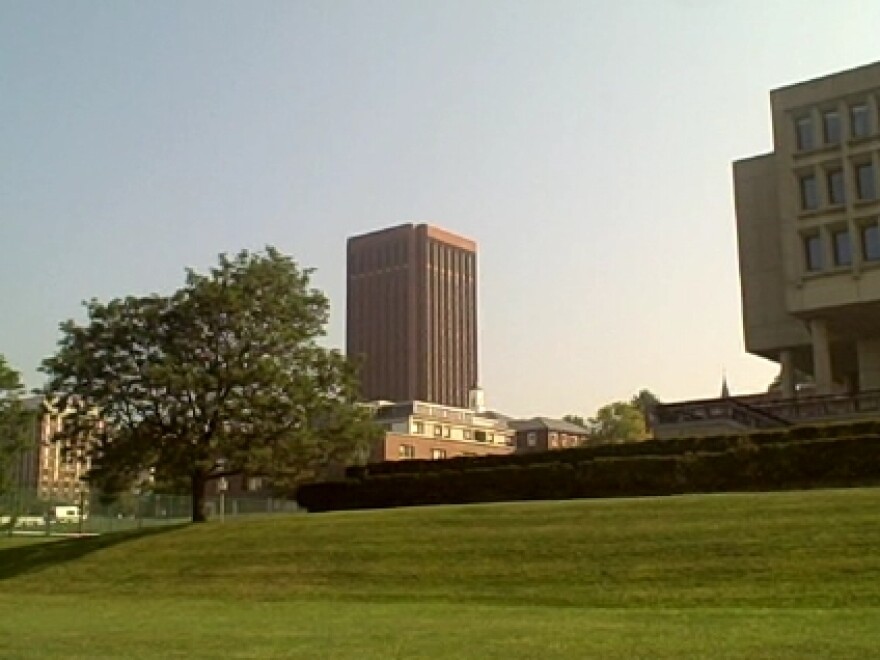Campus police at the University of Massachusetts Amherst will stop using students as confidential informants while the practice is reviewed by university officials. Students praised the suspension of the program.
Chancellor Kumble Subbaswamy ordered the program suspended and announced a comprehensive review after it was revealed that a student who had agreed to become a confidential informant for campus police died of a heroin overdose.
School spokesman Ed Blaguszewski said the program could be terminated or revised to include mandatory substance abuse treatment for student informants and parental notification.
"Those are two important aspects we need to take into account so that the tools the police use are in line with best practices and in the right approach and spirit with how we want to work with students here on campus."
A story in the Boston Sunday Globe detailed how campus police recruited a 20- year-old junior to be an informant after he had been caught selling LSD and the club drug know as Molly. The student, who was identified in the story only as Logan, was allowed to stay in school, keep his scholarship, and his parents were not told.
Logan was found dead in his off -campus apartment last October by his father. UMass police said they did not suspect he was a heroin user, according to the Globe.
Before Subbaswamy announced Tuesday the suspension of the confidential informant program the school had defended it. A statement on Monday said “ The growing use of heroin in Western Massachusetts and elsewhere is a major concern of university officials and police believe having this tool available is important to protect public safety.”
Blaguszewski said the confidential informant program will be evaluated as part of a scheduled accreditation review of the UMass Police Department that is expected to conclude by mid-2015.
" There are currently no student confidential informants and no active cases involving them, so no ongoing investigations are affected by this."
Many students interviewed on campus Thursday were unaware of the existence of the informants program.
Sam Chiburis, a freshman, said the program should be reevaluated.
" I don't approve of the use of student informants. It is an underhanded way to go about things."
Dakota Craig, a sophomore, agreed.
" They should do away with it. Setting kids up to rat on other kids is not cool."
Katelyn Songy, a junior, had mixed feelings.
" If it involved larger drugs that are more likely to harm you and cause damage than I could understand it."
Subbaswamy also announced the campus police, which had reported to the vice chancellor for administration and finance, will now report to the vice chancellor for student affairs and campus life. Blaguszewski said the change is intended to make the campus police more responsive to the concerns of students.
" It integrates a lot of other student life discussions and policies that occur every day with the police department and what they are going. It will improve communication and coordination on a lot of issues."
A number of improvements to public safety on campus were suggested in a report last month by Ed Davis. The former Boston Police Commissioner was hired by the university to review the police response to last year’s Blarney Blowout.






